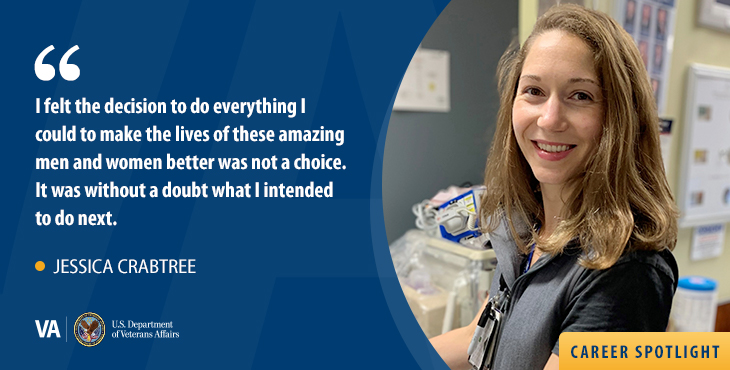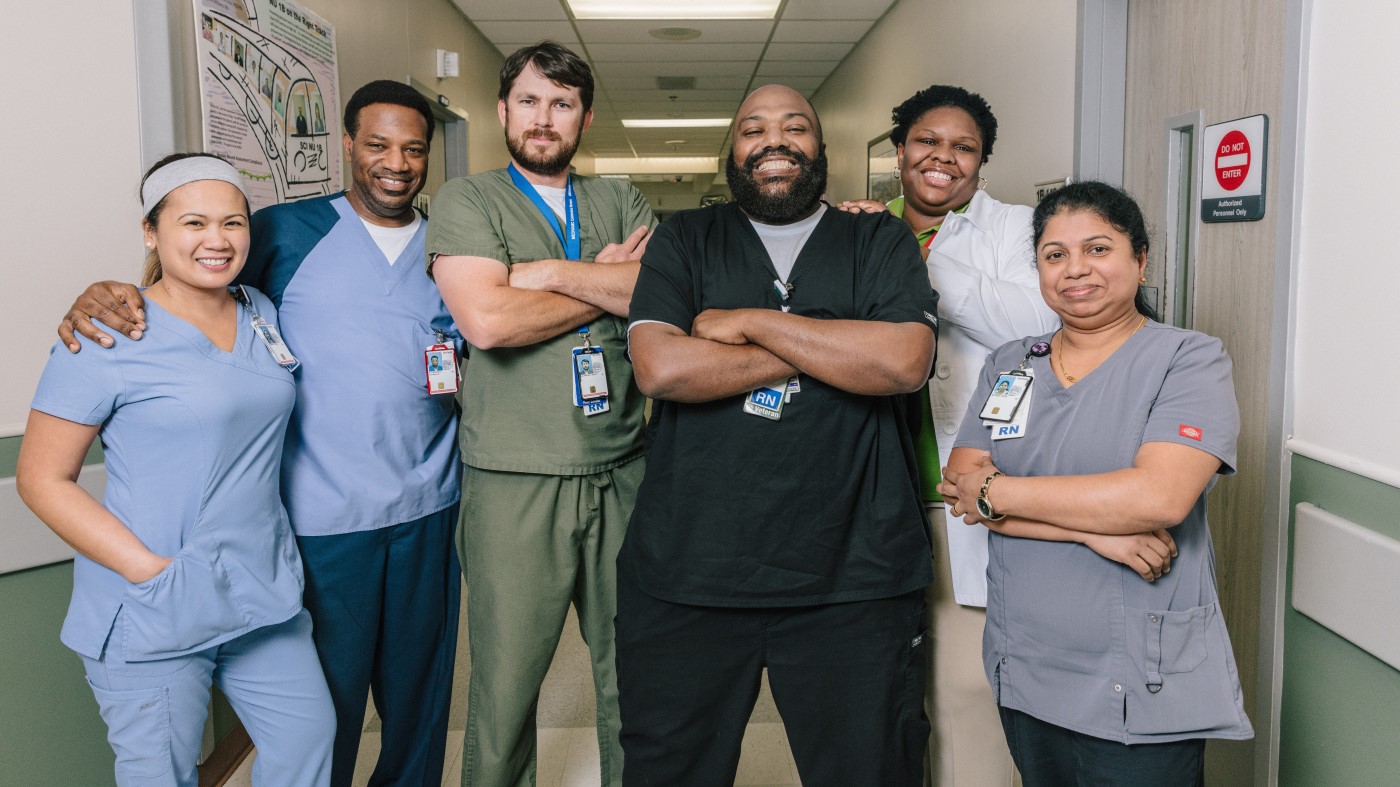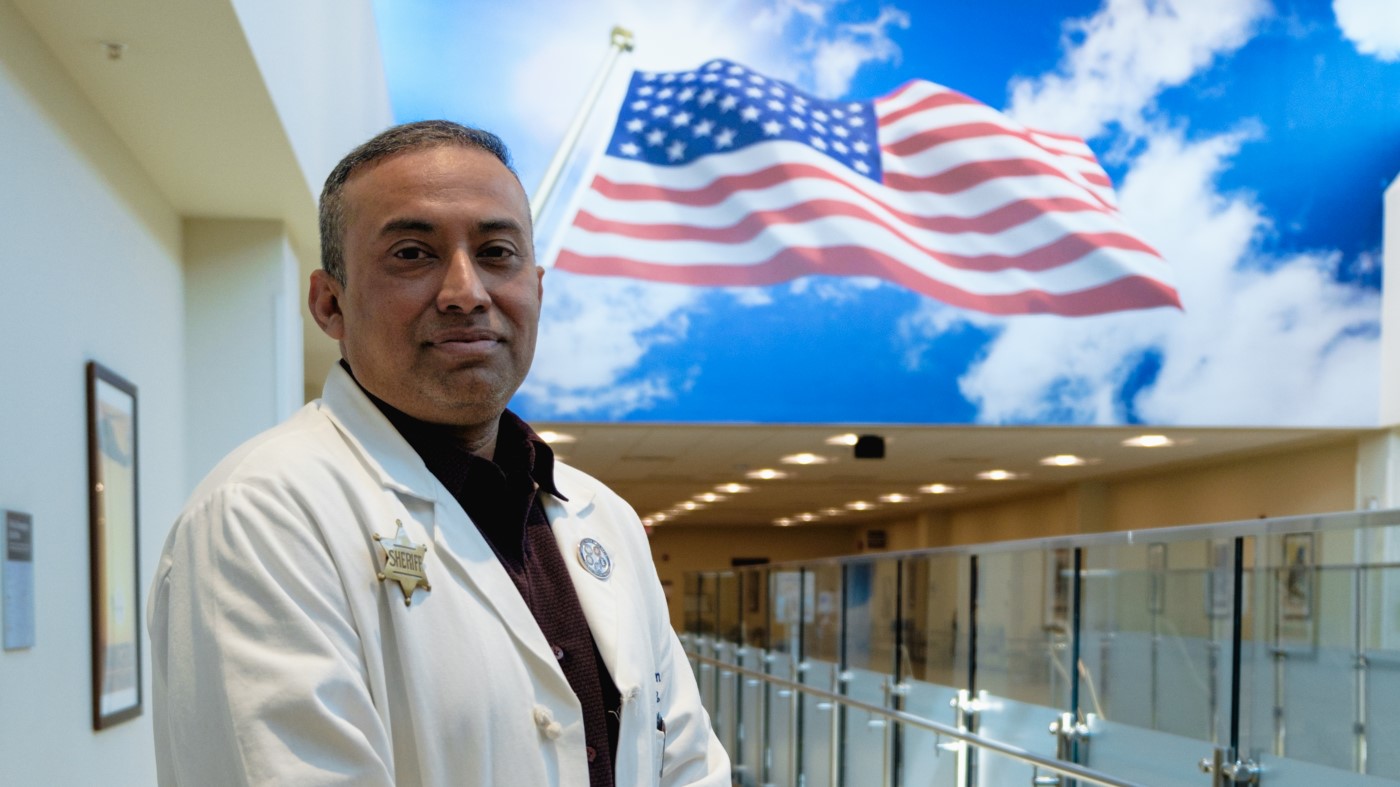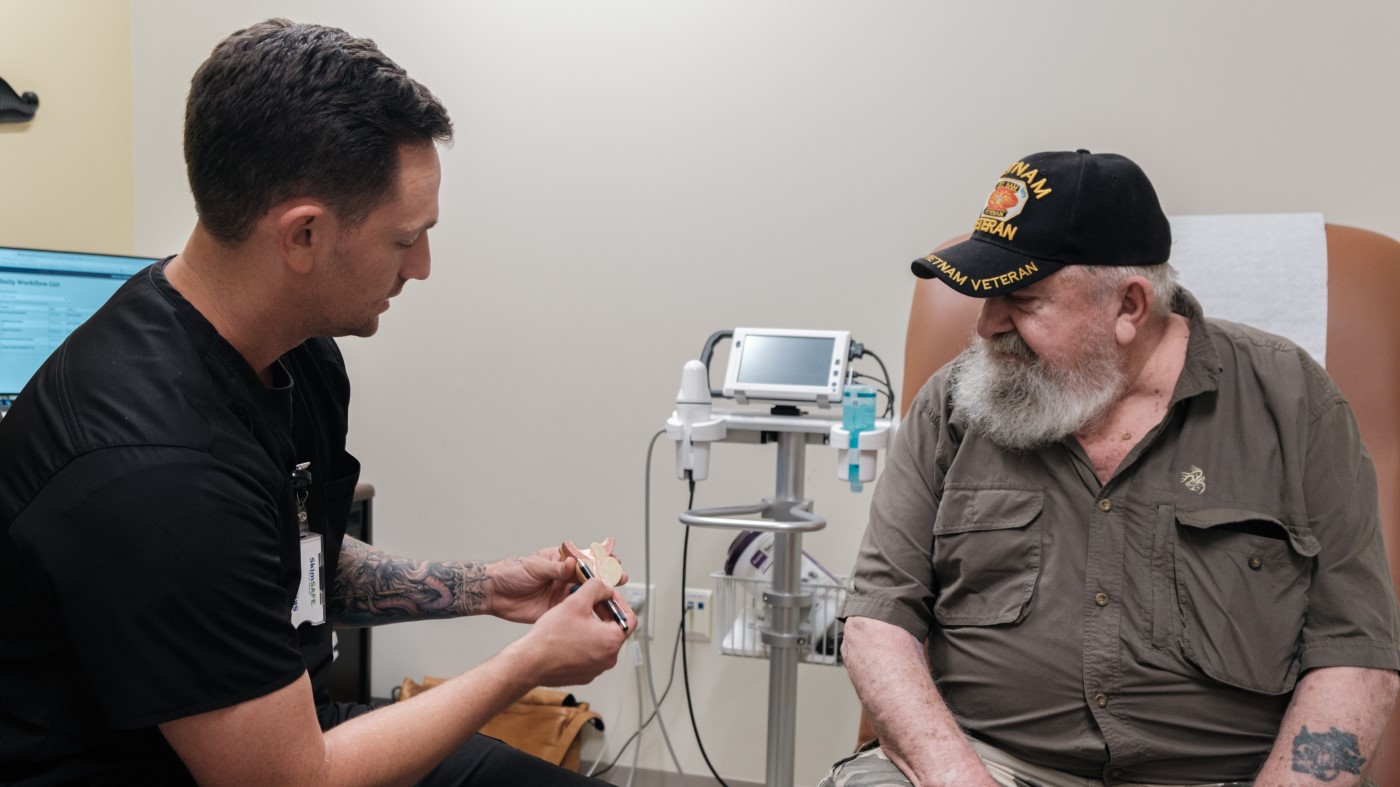Jessica Crabtree knew she wanted to do work that mattered. The first step was going back to school to pursue a nursing degree at age 28. The next step was a little more up in the air.
Then, as she entered her fourth semester of nursing school, she was intrigued by the VA Learning Opportunities Residency (VALOR) program.
“The more I learned about VA hospitals and the men and women who sought VA hospital health care, the more humbled I was by these extraordinary people,” said Crabtree, now a registered nurse in a VA inpatient psychiatry unit.
Through VALOR, Crabtree was able to secure a residency at the Nashville VA Medical Center. Having resigned from a full-time job with benefits to go back to school, a paid residency and the benefits that would come with a full-time VA position were very appealing to her.
It didn’t take long for her to realize working with Veterans was her future.
“I felt the decision to do everything I could to make the lives of these amazing men and women better was not a choice. It was without a doubt what I intended to do next,” Crabtree said.
“The patient population was the single most appealing aspect of choosing a career at VA. Veterans are a tough and silent group who often do not ask for help until very late,” she added.
When her residency was done, Crabtree segued seamlessly into a full-time position on the same floor.
“I did not have new-hire anxiety,” she said. “This is a huge advantage of the VALOR program versus being hired as a new nurse from the outside.”
This continuity also enhanced the training she received in nursing school, allowing her to understand how a psychiatric inpatient unit operates even before beginning her full-time job.
Because mental health ailments are invisible, patients can be more challenging to treat than traditional medical patients, Crabtree said. During her VALOR residency, she was able to develop skills that you can’t learn in a classroom but that are essential to treating this patient population — including refined intuition, reading of nonverbal language, anticipation of needs, risk aversion and excellent interpersonal skills.
“This experience was invaluable learning for me. I recommend similar training to any new nurse,” Crabtree said.
On a typical day, Crabtree maintains the therapeutic environment for inpatients, evaluates medication and treatment. She also collaborates with the treatment team for precision delivery of complex care. She serves as a first-line patient advocate for Veterans with psychiatric and comorbid medical conditions.
As a bonus, caring for Veterans also helped her better understand her own father, a Vietnam Veteran.
In addition to her positive experience with the VALOR program, Crabtree also has enjoyed the benefits, job security, student loan assistance, and career advancement and continuing education opportunities that come with a VA career. Another perk is the ability to work anywhere in the country in any clinical setting.
But the most rewarding benefit?
“Knowing that I am doing real work that matters and contributes directly to an improvement in someone’s quality of life,” Crabtree said.
Work at VA
If you’re also inspired to make a difference in the lives of Veterans, consider a nursing career at VA.
- LEARN more about working as VA nurse.
- EXPLORE education support options, including VALOR.
- LOOK for job opportunities near you.
- READ about the benefits we offer.
Topics in this story
More Stories
Providing better outcomes for diverse Veterans means finding ways to reach them, whether on a personal level or on a geographic level.
As a chief of staff, you’ll have many important responsibilities, but also an opportunity to make positive change for our team and the Veterans we serve.
As a geriatrics specialist at VA, your work will have a huge impact on Veterans as they come to rely on VA’s care as they grow older.







If a person who worked for a municipality is hired by the VA as a LPN or RN will their municipality time count towards retirement at the VA?